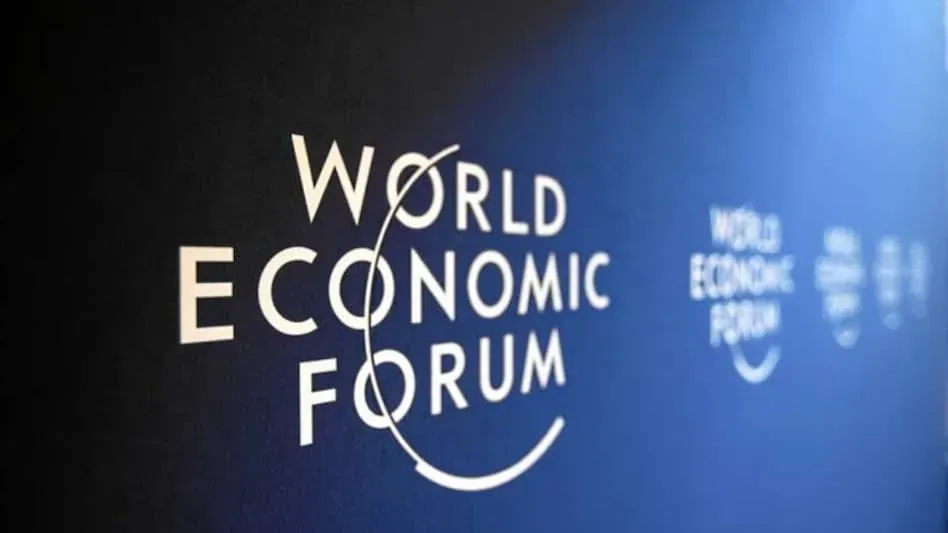The World Economic Forum 2025 is set to be a pivotal event, gathering leaders from all sectors to explore the future of global collaboration in a rapidly changing landscape. As discussions unfold in the picturesque backdrop of the Davos summit, topics such as AI transformation, workforce innovation, and the crucial elements of psychological safety will dominate the agenda. The dialogues promise to challenge conventional thinking and ignite innovative strategies for enhancing diversity and inclusion across industries. With a focus on the interconnectedness of today’s challenges, the Forum will serve as a call to action for decision-makers to foster environments that prioritize human well-being alongside technological advancements. As we look toward the future, the emphasis will be on creating a more inclusive and innovative world, driven by the power of collaboration and collective intelligence.
The 2025 gathering of the World Economic Forum in Davos, often referred to as the premier global summit for leaders, will be a critical platform for discussing transformative changes in our economies and societies. This year, the focus will shift towards the implications of artificial intelligence and how it intersects with human creativity and workforce evolution. Participants will delve into the importance of fostering an environment of psychological safety, which is essential for encouraging innovative thought and diverse perspectives. As the narrative around diversity and inclusion continues to evolve, the Forum will highlight the necessity of cultivating equitable workplaces that reflect our global society. Ultimately, the discussions will aim to inspire actionable insights and strategic frameworks to navigate the complexities of the modern economic landscape.
AI Transformation: The New Frontier in Workforce Innovation
The 2025 World Economic Forum in Davos showcased AI as a key driver of transformation in the workforce. This shift from merely discussing AI’s potential to exploring practical applications highlights a growing recognition among leaders that AI is not just a tool for efficiency but a catalyst for creativity and innovation. By focusing on use cases that enhance human capabilities, the discussions emphasized the need for a holistic approach to integrating AI into existing workforce structures. This perspective aligns with the understanding that to harness AI effectively, organizations must rethink their operational frameworks, ensuring that technology complements human intelligence rather than replaces it.
However, this optimism surrounding AI’s transformative role comes with significant responsibilities. The call for responsible AI governance echoed throughout the summit, underscoring the importance of ethical considerations in AI deployment. Leaders acknowledged the potential risks associated with AI, particularly regarding job displacement and the need for safeguards to ensure that AI serves as a net benefit for humanity. This dual focus on innovation and responsibility points towards a future where AI can enhance workforce innovation while promoting a sustainable and equitable environment.
Workforce Transformation: Embracing Change and Upgrading Skills
At the Davos summit, the conversation around workforce transformation took on a new tone. Unlike in previous years, where disruption was often met with apprehension, this year’s dialogue emphasized proactive approaches to navigating change. Leaders highlighted the necessity of transparency and trust in the workplace, recognizing that successful transformation relies on bringing employees along in the journey. The urgency surrounding reskilling and upskilling was palpable, as organizations acknowledged the fear of obsolescence that many employees feel in the face of rapid technological advancement.
This year’s discussions also illuminated the concept of ‘FOBO’—the fear of becoming obsolete—reflecting a widespread concern that AI could render certain roles redundant. However, leaders at the forum stressed that transformational change cannot simply mean replacing human workers with AI; rather, it requires a thoughtful redesign of work processes that integrate human and machine capabilities. This approach not only addresses fears but also empowers the workforce to adapt and thrive in an increasingly automated landscape.
Psychological Safety: The Cornerstone of High-Performing Teams
The importance of psychological safety emerged as a central theme at the World Economic Forum, with leaders recognizing it as essential for fostering high-performing teams. Discussions revolved around the necessity of creating environments where employees feel safe to express their thoughts and ideas without fear of judgment. This foundational element is critical not only for innovation but also for ensuring that teams can collaborate effectively in the face of rapid change driven by AI and other technologies.
During a particularly thought-provoking panel, Marc Benioff posed a compelling question: “Is AI a basic human right?” This inquiry opened up discussions about the intersection of technology and human dignity, highlighting the need to balance innovation with the preservation of core human values. As organizations increasingly rely on technology, maintaining a focus on psychological safety becomes paramount, ensuring that technological advancements enhance rather than inhibit human connection and collaboration.
Diversity, Equity, and Inclusion: Evolving Conversations at Davos
The topic of diversity, equity, and inclusion (DEI) was front and center at the Davos summit, reflecting a growing acknowledgment of its importance in shaping future workplaces. Leaders candidly discussed the evolving nature of DEI, recognizing that it does not resonate uniformly across different organizations or cultures. However, the commitment to fostering inclusive environments was evident, with many emphasizing that fairness and belonging should be core values rather than mere aspirations.
The conversations at Davos underscored the necessity of building cultures where DEI principles are not just policies but integral to the organizational ethos. Leaders articulated a vision of workplaces where diverse voices are not only welcomed but actively sought out, fostering a sense of belonging for all employees. This commitment to inclusivity is particularly vital in an era marked by rapid technological change, as diverse teams are better equipped to innovate and navigate the complexities of the modern workforce.
Harnessing Data and Metrics: Key to Future Workforce Success
The significance of data and metrics in shaping the future of work was a prominent theme at the World Economic Forum. As organizations navigate the challenges posed by AI and workforce transformation, having access to accurate and comprehensive workforce data is crucial. Leaders discussed how data can inform strategies to ensure that AI benefits workers and helps address existing biases within organizations. This data-driven approach is essential for unlocking human intelligence at scale, identifying hidden talent, and creating equitable pathways for leadership.
Moreover, the conversations around metrics highlighted the need for organizations to measure not only productivity but also the overall well-being and engagement of their workforce. By leveraging data effectively, leaders can create environments that promote psychological safety and inclusivity, ultimately driving innovation and performance. This commitment to harnessing data reflects a broader understanding that the future of work will be defined by a balance between technological advancement and the human experience.
Frequently Asked Questions
What are the main themes discussed at the World Economic Forum 2025 in Davos?
The World Economic Forum 2025 in Davos highlighted five key themes: AI as a catalyst for transformation, workforce transformation and skills evolution, the importance of psychological safety and connection, diversity, equity, and inclusion (DEI), and the use of data and metrics to understand workforce dynamics. Each theme reflects a commitment to human-centered innovation and collaboration.
How is AI transforming workforce innovation discussed at the World Economic Forum 2025?
At the World Economic Forum 2025, discussions on AI focused on its role as a catalyst for workforce innovation. Leaders emphasized moving beyond traditional productivity metrics to explore how AI can enhance creativity and collaboration, while also addressing the need for responsible AI governance to ensure that technological advancements benefit humanity and workers alike.
What role does psychological safety play in the conversations at the World Economic Forum 2025?
Psychological safety was a critical topic at the World Economic Forum 2025, viewed as essential for high-performing teams. Leaders discussed how fostering an environment where employees feel safe to express themselves can enhance collaboration and innovation, particularly in the context of rapid AI integration.
What is the significance of diversity and inclusion at the World Economic Forum 2025?
Diversity, equity, and inclusion (DEI) were prominent themes at the World Economic Forum 2025, with leaders acknowledging the evolving nature of DEI discussions. The commitment to creating fair and inclusive workplaces was underscored, emphasizing that these values must be actively lived and integrated into organizational cultures.
How does the World Economic Forum 2025 address the challenges of workforce transformation?
The World Economic Forum 2025 addressed workforce transformation by highlighting the urgent need for reskilling and upskilling in the face of AI advancements. Leaders shared strategies for transparency and trust, ensuring that employees are supported throughout the transformation process to alleviate fears of obsolescence.
What impact does the World Economic Forum 2025 foresee from AI on future work models?
The World Economic Forum 2025 anticipates that AI will significantly reshape future work models, encouraging a rethinking of traditional workforce structures. Leaders emphasized the need for human-centric strategies that utilize AI to enhance human intelligence, creativity, and collaboration rather than replace human roles.
How is data being utilized to enhance workforce dynamics as discussed at the World Economic Forum 2025?
Data was highlighted as critical at the World Economic Forum 2025 for understanding the impact of AI on the workforce. Leaders discussed using workforce data to unlock Human Intelligence, address biases, and create equitable pathways for leadership, ensuring that technological advancements benefit all employees.
What calls to action emerged from the discussions at the World Economic Forum 2025?
The discussions at the World Economic Forum 2025 prompted calls to action for leaders to not only adapt to change but to actively shape it. Emphasizing the need for bold thinking and collaborative efforts, the forum encouraged leaders to champion systemic transformation and foster cultures that prioritize human values and connectivity.
| Key Themes | Description |
|---|---|
| AI (and HI) as a Catalyst for Transformation | The narrative on AI is shifting towards its practical applications in creativity and innovation, emphasizing the need for responsible governance and ethical considerations. |
| Workforce Transformation and Skills Evolution | Focus on reskilling and upskilling, with leaders addressing concerns about obsolescence due to AI and emphasizing the need for transparency and trust. |
| Psychological Safety and Connection | The importance of psychological safety for high-performing teams was highlighted, alongside discussions on how AI should enhance human connection. |
| Diversity, Equity, and Inclusion (DEI) | Commitment to building inclusive workplaces was strong, despite evolving perceptions of DEI. Leaders emphasized lived values of fairness and belonging. |
| Data and Metrics | Emphasis on the importance of workforce data to understand AI’s impact and to promote equity and uncover hidden talent. |
Summary
The World Economic Forum 2025 was a pivotal event that showcased the urgent need for a collaborative approach to address the multifaceted challenges of our time. By focusing on themes like AI integration, workforce transformation, psychological safety, DEI, and effective use of data, global leaders are being called to action. The insights gained here underline that while technology plays a crucial role, it is fundamentally the human element—our values and connections—that will shape a future that is innovative, inclusive, and equitable for all.







Leave a Reply